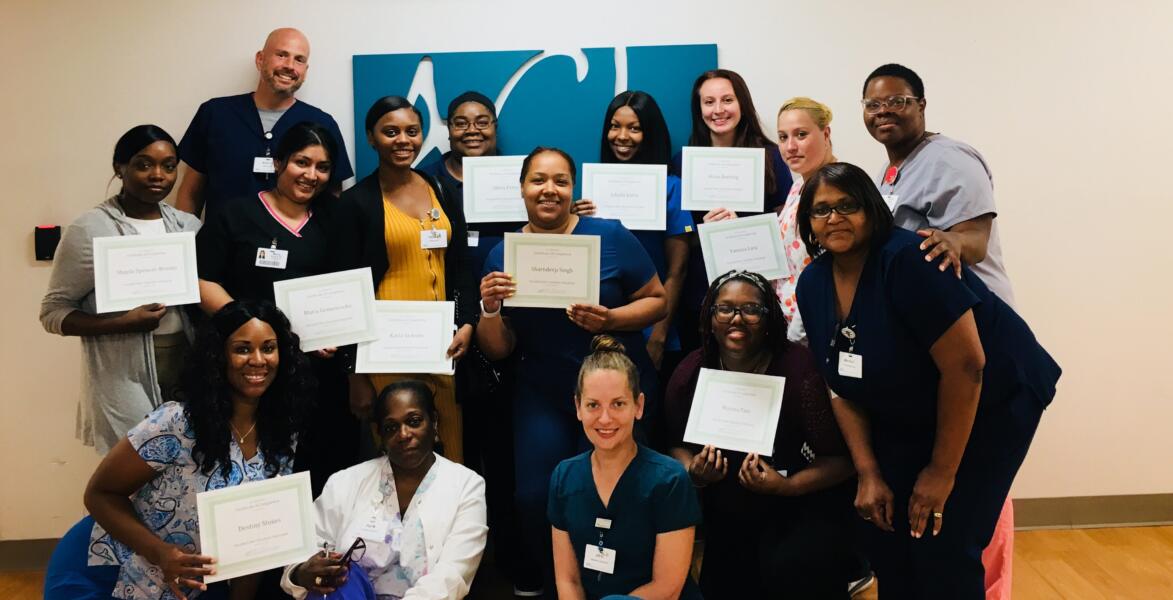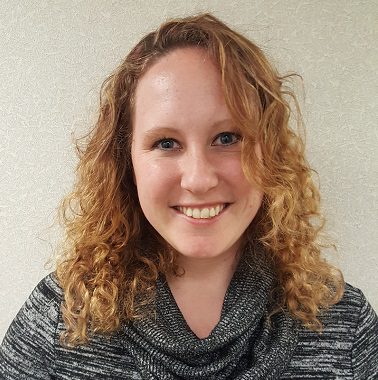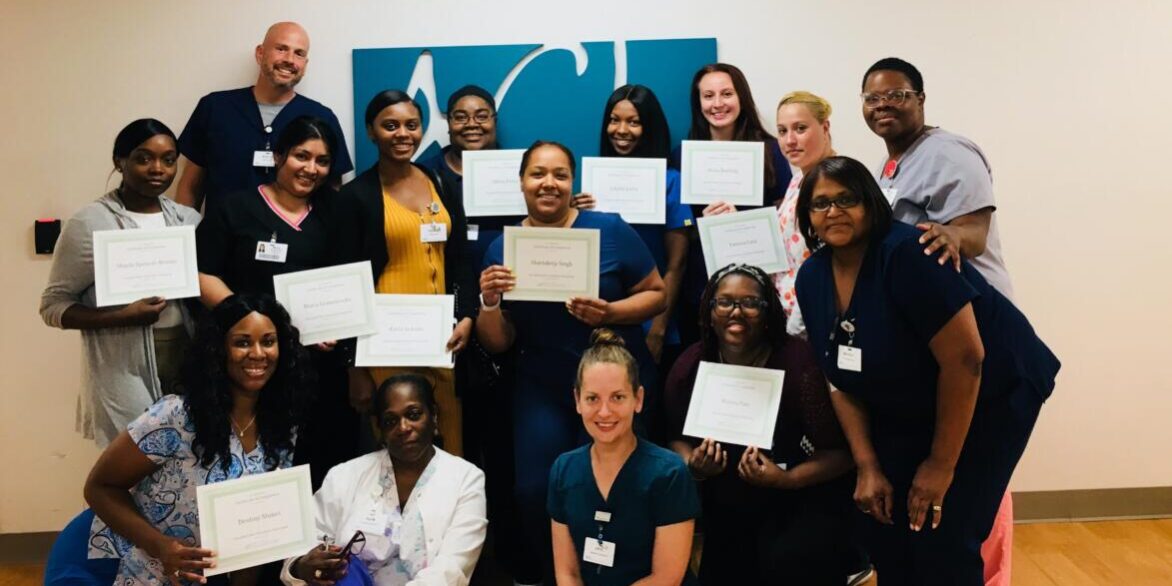Carolyn Sabady, PBT(ASCP)
 |
 |
| Top: Graduates of the ACL Laboratories (AdvocateAurora Health) phlebotomy training program. Bottom: Author Carolyn Sabady is phlebotomy supervisor at ACL Laboratories. |
There is an urgent need across the country for phlebotomists. According to the Bureau of Labor Statistics, the employment rate of phlebotomists is projected to grow 25 percent between 2016 and 2026. In 2017, ACL Laboratories (AdvocateAurora Health Care) performed 26 million tests, and 730 phlebotomists performed 2.5 million venipunctures. In response to the urgent need for phlebotomists, ACL Laboratories (AdvocateAurora Health Care) created a phlebotomy training program. The program has benefited the organization by promoting growth and engagement and has filled numerous empty positions within the organization.
How We Got Started
The extensive planning for the phlebotomy training program started in the summer of 2017. Given that AdovcateAurora Health Care is one of the largest healthcare systems in the Midwest, the group of individuals that met to discuss the phlebotomy training program included representatives from Wisconsin and Illinois. A group of 14 individuals (supervisors, educators, senior directors, and human resource partners) throughout the organization met weekly to discuss the essentials that were needed to build this program and align it with the Clinical & Laboratory Standards Institutes (CLSI) standards. In addition, three additional subgroups were formed to construct a curriculum, assess location, and evaluate human resource logistics.
The Program Structure
The phlebotomy training program is a paid two-week program. The potential candidates apply online to the phlebotomy trainee position and are interviewed by our talent acquisition team. After the applications are reviewed and the candidates are interviewed, a job offer is made. The candidate accepts a position within the organization. Upon completion of the two-week program, the students are placed into open phlebotomy positions within the organization. The classes are eight hours a day and include four days of clinicals. Over the course of the two-week program, the phlebotomy students learn:
- Introduction to Medical Lab and Clinical Roles
- Capillary Collection
- Patient Assessment-Patient Care
- Soft Skills
- Safety and Infection Control
- Medical Terminology
- Blood Specimen Collection Process and Venipuncture Technique
- Procedure Documents
- Phlebotomy Equipment
- Collection of Nonblood Specimens
- Specimen Handling
While this may seem like a short span of time to learn phlebotomy, the phlebotomy students that graduate the program continue to improve their skills and are partnered with a seasoned phlebotomist at their job site for continued training.
The Start of Success
After months of planning, the two-week phlebotomy training program was piloted in January 2018 in Wisconsin, with two phlebotomy students. Upon completion of the program, the two phlebotomy students were placed into open positions within the organization. Since the pilot of the program in Wisconsin in January 2018, ACL Laboratories (AdvocateAurora Health) held six additional classes in Wisconsin, four in Illinois, and had a total of 57 successful graduates. In 2019, Wisconsin has had two classes and Illinois has had one class, with a total of 25 successful graduates. The feedback received from the phlebotomy trainee candidates has been enlightening, capturing areas where we can improve the program and the flexibility to allow them to acquire new skills while promoting work/life blend.
Benefits for the Organization
The success of this program has empowered many internal team members as well as external candidates to fill the vacant phlebotomy positions within the organization. The phlebotomy training program has also assisted with the growth of team members within the organization, including the creation of a new position—phlebotomy training specialist. There is no greater reward then to promote growth and development within your organization and to find a positive solution for our substantial need for phlebotomists.
Carolyn Sabady is phlebotomy supervisor at ACL Laboratories in Milwaukee, Wisconsin.
For more on phlebotomy topics, join the Phlebotomy Scientific Assembly.
